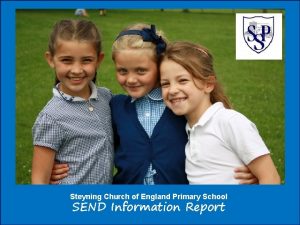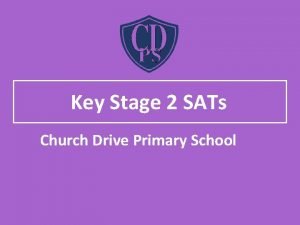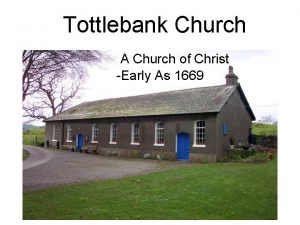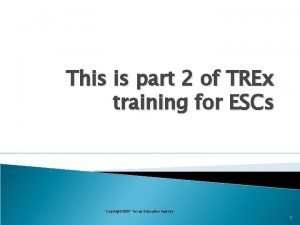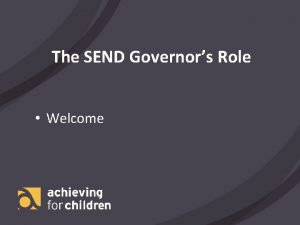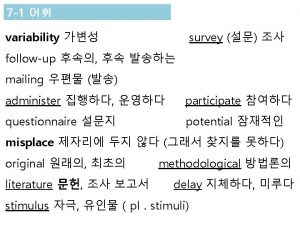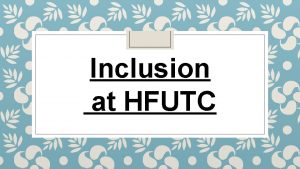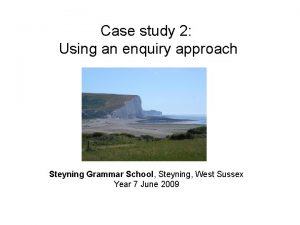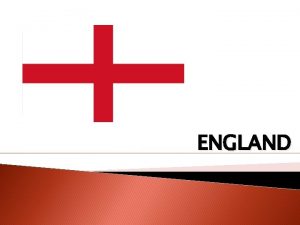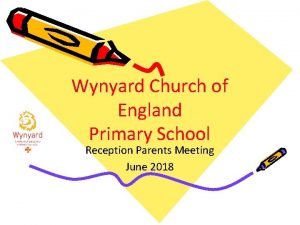Steyning Church of England Primary School SEND Information















- Slides: 15

Steyning Church of England Primary School SEND Information Report

How will I know how my child is getting on? How do you know if my child needs extra help? What should I do if I think my child has a special educational need? How will the school prepare and support my child to join the school, or transfer to a new school? Click on a question to find out the answer! How will you help my child to access the curriculum? How does the school allocate resources to children with special educational needs? How is the decision made about how much support my child will receive? Click the home button to return to this page What support is available for social, emotional and mental health? How accessible is the school environment? What happens when you go on trips? How will you involve me in planning for my child’s learning? How will you help me to support my child’s learning at home? What specialist services and expertise are available or accessed by the school?

How will I know how my child is getting on? You can make an appointment to meet your child’s class teacher at any time throughout the year, if you’d like a more detailed conversation about how they’re getting on. If we have any concerns about your child’s progress, we will call you to arrange a meeting. Class teachers are on the playground at the beginning and end of every day for a quick chat. Parent teacher consultations are held twice each year in October and June. The class teacher will meet with you to discuss how your child is getting on at school. In July, you will receive a detailed written report showing your child’s attainment and, more importantly, the progress they have made throughout the year. At the end of the year you will be invited into school for an ‘Open Evening’ when your child will celebrate their successes with you by showing you their year’s work.

How do you know if my child needs extra help? At Steyning Primary School we aim to spot barriers to learning as early as possible so that we can put strategies in place to overcome them. Every half term each class teacher meets with the Head Teacher, the Deputy Head Teacher, the Inclusion Manager and the Team Leader for a ‘Pupil Progress Meeting’. Together they look at each child and whether they are on track to meet the age-related expectations stated in the National Curriculum. More importantly, they look at how much progress each child is making (they should make three terms progress in a year). If a child is not making sufficient progress the team explores why. Together they develop a plan of action to be carried-out during the next half term and reviewed at the next Pupil Progress Meeting. Sue Harrison Head Teacher Each action plan is tailored to the child’s individual needs and therefore varies in content. Tom Newling Team Leader Y 5 and 6 Cara Provost Team Leader Y 3 and 4 Chris Gibbon Deputy Head Teacher Katy Harrison Team Leader Y 1 and 2 Jen Griffin Inclusion Manager Ann-Marie Allen Team Leader Reception

What should I do if I think my child has a special educational need? If you think your child has a special educational need, Definition of Special Educational Definition of Special. Needs Educational Needs please make an appointment to meet with their class A pupil is considered to have Special teacher and the Inclusion Manager, Jen Griffin. A pupil is considered to have Special Educational Needs if he or she has defined Educational Needs if he or she has difficulties over and above those generally experienced by the majority of his or her If necessary, together you can agree upon the best course defined difficulties over These and difficulties above peer group. may be sensory, cognitive, physical, social or of action to investigate further. This may involve those generally experienced by the emotional and some children may have complex of being assessments being needs, carried which out at cover school a orrange a referral majority of hisdifficulties. This policy aims to address the needs of these pupils. or her peer group. These made to an external agency. difficulties may be sensory, cognitive, physical, social or emotional and some children may have complex needs, which cover a range of difficulties. Communication and Interaction Cognition and Learning Social, Emotional and Mental Health Sensory and/or Physical

How is the decision made about how much support my child will receive? Every half term each class teacher meets with the Head Teacher, the Deputy Head Teacher, the Inclusion Manager and the Team Leader for a ‘Pupil Progress Meeting’. Together they look at each child and whether they are on track to meet the agerelated expectations stated in the National Curriculum. More importantly, they look at how much progress each child is making (they should make three terms progress in a year). Depending on the level of need, different resources and strategies will be put in place to target any specific barriers to learning. Interventions are closely monitored and their impact measured. (For more details, see bottom right) https: //westsussex. localoffer. org/information/4 -ehc-needs-assessment An EHC plan is a legal document that describes a child or young person's special educational, health and social care needs. It explains the extra help that will be given to meet those needs and how that help will support the child or young person to achieve what they want to in their life. The plan is drawn up by the local authority after an EHC Assessment. If your child has an EHCP, the Inclusion Manager will make sure that provision is put in place to enable them to reach the outcomes stated in the plan. For more information on Education and Health Care Plans, please follow the link. Please click on the image below to read our ‘Intervention Guide’

How will the school prepare and support my child to join the school or transfer to a new school? Starting in Reception Before your child joins Steyning Primary School, the Reception team will visit them in their nursery setting. They will hold liaison meetings with the nursery staff in order to develop a detailed profile of your child and their needs. For any children for whom settling in to a new environment may be an especially daunting experience (more than average) the Reception teachers will conduct a series of home visits in order to form a relationship with the child. As a parent, you will be involved in this process from start to finish and will have plenty of opportunities to ask as many questions as you like. Going on to secondary school Moving year group Every year we hold three consecutive transition mornings during which your child’s class spend time in their new classroom, getting to know their new teacher. For any children who find transition especially difficult, our Children’s Mentors step in to support them, meeting with them to discuss their concerns and help alleviate them. Every child takes home a poster during the summer holiday displaying their new class teacher and the adults in the team who may work with them. The majority of our children transfer to Steyning Grammar School who have a detailed transition programme in place which includes: • Liaison meetings between Y 6 teachers and Y 7 Head of Year • Liaison meetings between our Inclusion Manager and the Grammar School SENCO • A preliminary visit with the Inclusion manager to the Grammar School for children who may be especially anxious • A visit to our school by the Learning Support Mentors who will work with children in Y 7 • A visit to our school from past pupils and the Head of Year 7 to answer children’s questions • Completion of a Transition booklet • Completion of a Pupil Passport by the children (see top right) with special educational needs, stating their strengths and concerns • A visit by the entire Y 6 year group to the Grammar School for a transition taster day. A move part way through a year Children sometimes join us mid-way through a year. This transition is carefully planned and the new child will be assigned a ‘buddy’ from their class. Our children’s Mentors will also check-in to make sure the transition is a smooth one.

How will you help my child to access the curriculum? At SPS we believe that relationships are the key to successful learning across the curriculum. Getting to know the children extremely well in order to understand what they are capable of doing on their own and what they are capable of with help - i. e. their levels of potential development - is essential. We aim to provide supportive scaffolding for children to develop the self-confidence to take risks in all aspects of their learning and become independent learners. We believe that there are different strategies for achieving this. According to different abilities, tasks may need to be simplified and broken down into manageable bite-sized chunks and the environment organised in different ways. Resources may also be adapted according to a need. This is achieved by being ready and prepared, knowing the children as individuals and anticipating when they might need support to avoid failure. All teaching staff in school aim to be an active presence for the children, intervening as and when necessary, whilst encouraging independence. In addition to regular ongoing differentiation in classrooms, specific intervention groups are organised to support children who may have gaps in their learning. For more information on specific interventions, please click here If you would like to read our school Dyslexia Policy, please click here:

How does the school allocate resources to children with special educational needs? The school is allocated a fixed amount of money each year specifically for children with SEND, some of which is spent on resources. We work with a range of external agencies who advise us as to the best provision required to meet each special educational need. In addition, every classroom is set up to support children with barriers to learning using a range of multi-sensory resources.

How accessible is the school environment? What happens when you go on trips? At SPS we are committed to providing an accessible environment which values and includes all pupils, staff, parents and visitors, regardless of their education, physical, sensory, social, spiritual, emotional and cultural needs. Our classrooms are adapted where possible to meet the needs of children with specific needs such as autism or physical disability. All classrooms are ‘Dyslexia-friendly’ incorporating visual strategies that support all children. Our building is one storey with easy access for wheelchairs and has toileting facilities for disabled individuals. Parents/carers of children with physical disabilities are encouraged to visit the school and discuss their child’s needs in detail with the Head teacher in advance of enrolment. Steyning Primary School staff will always use their best endeavours to ensure that trips are fully accessible to children with SEND. We will seek to make reasonable adjustments to trips and activities where required. This may include asking parents/carers to assist on a trip, or preparing alternative routes or opportunities in order that children can access the same learning as their peers. The Senior Leadership Team, class teacher and TAs will liaise together as required and with parents/carers in the planning of additional support and provision for activities outside the classroom. Where required, a risk assessment will be completed to ensure provision is appropriate. We are able to access support for children and parents/carers for whom English is an additional language from the West Sussex Ethnic Minority Achievement Team (EMAT) and through local interpreter and translation services. To read our school Accessibility Policy, please click here.

How will you help me to support my child’s learning at home? There are many ways that we communicate with parents about their child’s learning and how to support them at home. By holding a meeting each year to explain what to expect in your child’s new year group. By running ‘curriculum workshops’ for specific areas of learning, showing parents how to support children at home. By running a ‘Parents Forum’ every half term for parents of children with SEND. By meeting with parents to explain a specific intervention their child may be part of and how to develop learning at home. Through curriculum information sheets and homework grids, available on the website.

What support is available for social, emotional and mental health needs? The children in our school have a range of needs, from Autism and Dyslexia to emotional, social and behavioural. We believe that all children learn best when they feel secure and happy and so aim to remove emotional barriers to learning. Class teachers strive to make their classrooms positive and supportive environments in which children are valued, listened to and where their efforts are celebrated. At different times in their lives children may require additional support, beyond the classroom environment and we are proud to say that our provision for social, emotional and mental health is a strength of the school. We recognise that children are at different stages with regard to social and emotional communication, behaviour and interaction, self-esteem and confidence – just as much as they are in their understanding of academic subjects and that ‘one size does not fit all’. With this in mind we have developed a comprehensive package of support including: • Two fully-trained, accredited ‘Children’s Mentors’ who create bespoke action plans for supporting both groups and individuals • A ‘Nurture Group’ in a specially created building, run every afternoon by the Children’s Mentors • A fully qualified children’s counsellor working in school three afternoons every week

How will you involve me in planning for my child’s learning? We adopt a child centred approach at Steyning primary School. Just as the phrase suggests, a child centred approach is about ensuring the child (and their family) is at the centre of decisions which relate to their life. A child-centred process involves listening, thinking together, sharing ideas, and seeking feedback. This process is ongoing to make sure children are supported towards their personal outcomes, even as they evolve and change. This is achieved through regular and effective communication with parents and by consultation with the child considering: • What is working well? • What isn’t working so well? • What are my strengths? • What areas do I find tricky? • What helps me? • What is important to me? • What is important for me? Your child may require a specific ‘Individual Learning Plan’ called ‘Steps to Success’ (see above). Teachers will create each plan with the Inclusion Manager, Jen Griffin and your input will be sought. You are always welcome to liaise with the Inclusion Manager via email: (Jennifer. Griffin@steyningprimary. org. uk) Or to make an appointment through the school office. Telephone: 01903 813420

What specialist services and expertise are available or accessed by the school? At Steyning Primary School we have a rich and varied range of experience and expertise in our teaching and support staff, who are trained to support children with many types of SEND, including: Speech, language and communication difficulties Autistic Spectrum Condition Physical therapies (if a programme has been provided by an external health specialist) Social, Emotional and Mental Health needs We also have access to many external services, including: · · · Social Communication / Behaviour / Learning Inclusion and Sensory Support Teams School Nurses Service Speech, Language and Communication Therapy Service Education Welfare Officer Family Support Worker Services / Early Help Social Care Services SEND Information and Advice Service Educational Psychology Service The Child Development Centre (NHS – Worthing Hospital) Play Therapy/Counselling Services

Further Information… For children already in school, the class teacher is the first point of contact regarding SEND, though the Inclusion Manager is also available to meet with parents/carers. If your child is due to join the school, the Inclusion Manager or the Head teacher would be your first point of contact. The West Sussex Local Authority Local Offer (which signposts to many support agencies) is accessible via the following link: https: //westsussex. local-offer. org/ The following information is also available on our school website: Nurture Group Info SEND Policy Children’s Mentors Info Teaching and SEND Learning Policy Behaviour Policy Dyslexia Policy Accessibility Policy
 Steyning grammar uniform
Steyning grammar uniform Steyning primary school
Steyning primary school Church drive primary school
Church drive primary school Church drive primary school homework
Church drive primary school homework Christ church primary school fenton
Christ church primary school fenton Church of england beliefs
Church of england beliefs Tottlebank church of christ in england
Tottlebank church of christ in england Japanese kindergarten hat
Japanese kindergarten hat Unit 4 school education system
Unit 4 school education system Yellow magenta and cyan are the ___
Yellow magenta and cyan are the ___ Maurine church coburn
Maurine church coburn Mpc nursing
Mpc nursing How to send a proper email to a teacher
How to send a proper email to a teacher Trex send transcript
Trex send transcript Wilfred grimly
Wilfred grimly Role of send governor
Role of send governor

